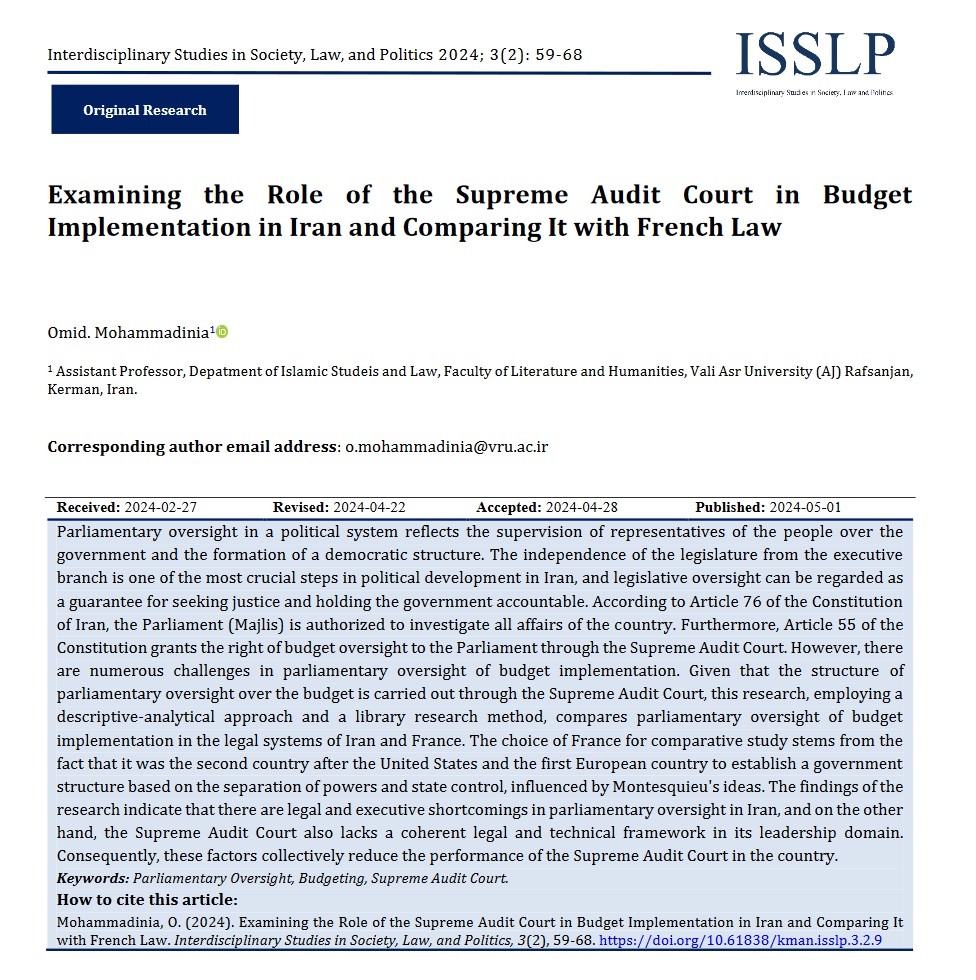Examining the Role of the Supreme Audit Court in Budget Implementation in Iran and Comparing It with French Law
Keywords:
Parliamentary Oversight, Budgeting, Supreme Audit CourtAbstract
Parliamentary oversight in a political system reflects the supervision of representatives of the people over the government and the formation of a democratic structure. The independence of the legislature from the executive branch is one of the most crucial steps in political development in Iran, and legislative oversight can be regarded as a guarantee for seeking justice and holding the government accountable. According to Article 76 of the Constitution of Iran, the Parliament (Majlis) is authorized to investigate all affairs of the country. Furthermore, Article 55 of the Constitution grants the right of budget oversight to the Parliament through the Supreme Audit Court. However, there are numerous challenges in parliamentary oversight of budget implementation. Given that the structure of parliamentary oversight over the budget is carried out through the Supreme Audit Court, this research, employing a descriptive-analytical approach and a library research method, compares parliamentary oversight of budget implementation in the legal systems of Iran and France. The choice of France for comparative study stems from the fact that it was the second country after the United States and the first European country to establish a government structure based on the separation of powers and state control, influenced by Montesquieu's ideas. The findings of the research indicate that there are legal and executive shortcomings in parliamentary oversight in Iran, and on the other hand, the Supreme Audit Court also lacks a coherent legal and technical framework in its leadership domain. Consequently, these factors collectively reduce the performance of the Supreme Audit Court in the country.
Downloads






